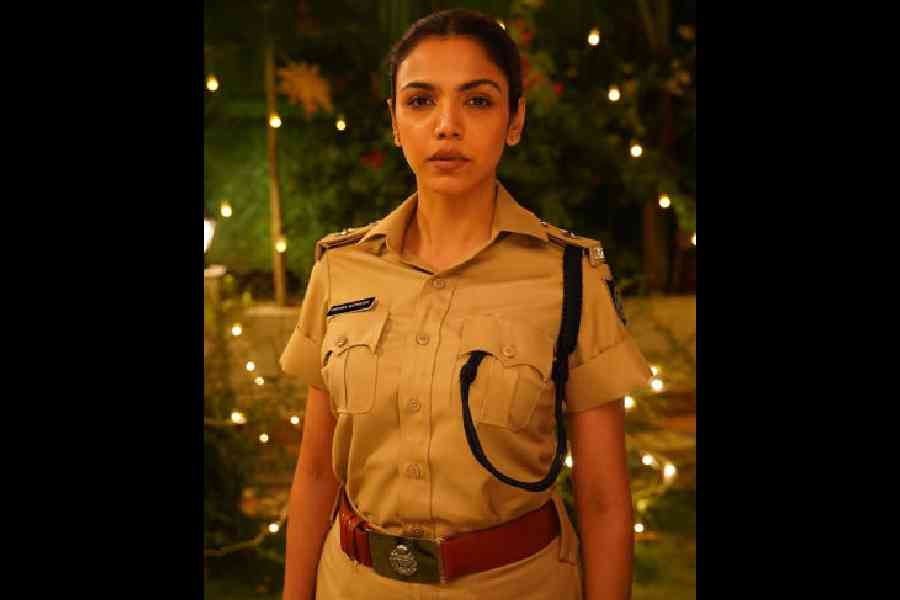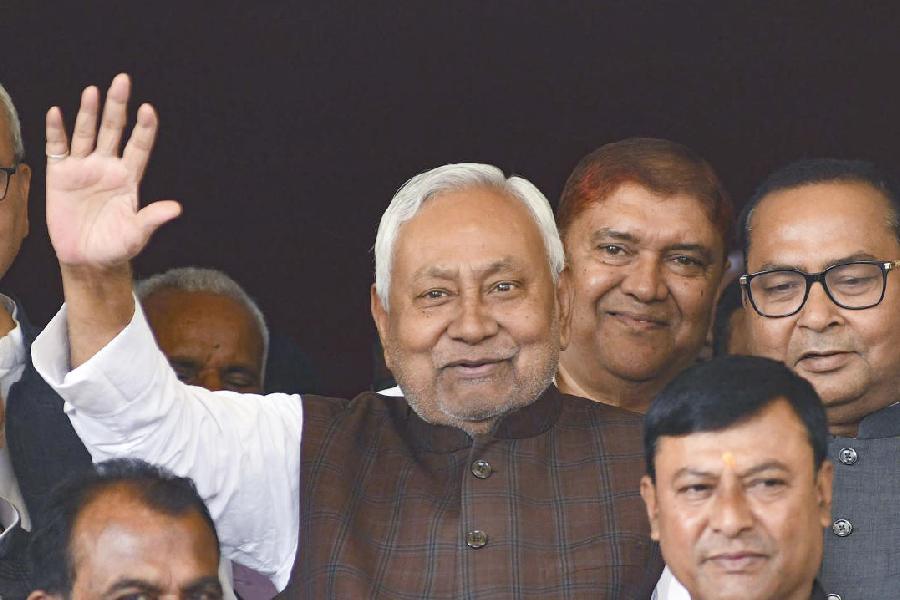Shriya Pilgaonkar plays a no-nonsense police officer out to investigate the death of a social media influencer who is found dead during a destination wedding attended by her closest friends, in the Zee 5 murder mystery Chhal Kapat: The Deception. A t2 chat with the vivacious Shriya.
The series seems to be a whodunnit with an Agatha Christie flavour to it.
Yes. Chhal Kapat is a seven-episode series that’s a crisp, binge-worthy watch, because every episode is very short — just 20-25 minutes. I’m a fan of whodunnit and that’s why I wanted to do this series.
Tell us about your character.
I play this cop, SP Devika Rathod. She is not a typical woman in uniform. She doesn’t choose aggression to show her power. She uses her sharp intellect and psychological tactics. She’s someone who will slay with a smile. She reads people’s minds really well and has sharp instincts. I thought those were very interesting character traits. And this is a new format for me in my OTT career, because I haven’t done a short series format before.
How long was the shortest series you had done before this?
Before this, all the series that I did — like Broken News, Guilty Minds, Taza Khabar—were longer, with more episodes.
Broken News went into multiple seasons also, right?
Yes, Broken News had two seasons, so had Taza Khabar. So those genres and the characters in that world were different. This is meant to be a light, quick family entertainer.
Is this your first time playing a policewoman?
Yes.
These days a lot of women are joining the IPS. Has people’s acceptance of a lady in khaki gone up, or does a lady police officer have to display more aggression to inspire the kind of reverence that is shown to her male counterparts?
That’s an interesting question. Recently, when I was in Lucknow promoting the series, I had the chance to meet a lot of female officers. And it’s very inspiring to see so many incredible women in the civil services doing brilliantly. Often power and authority are equated to masculinity. Our portrayals of cops on screen are perhaps always hyper masculine or very aggressive, But it’s interesting how many different kinds of cops — and people in power — there can be.
But yes, society is such that they do tend to underestimate women in power, no matter what field you’re in. Often in your professional life, even if you have that strength, there could be cases of women who, in their personal life are surrounded by insecure people who are not comfortable with her power. And this is an aspect that we’ve also shown for my character, Devika.
Playing a female cop for the first time, what kind of body language did you have? You did not follow the rough-and-tough template...
I didn’t have a reference in mind, because Devika was a whole new person, I had to create her from scratch. This was not a rough-and-tough template, but perhaps in future, if I get a character of a cop again that has to be rough and tough....
We wanted Devika to be gentle, approachable, yet very intimidating. So she is somebody who may not slap you, but she will intimidate you. She is somebody who knows how to own a space, how to get the answer out, but she may not do it immediately, aggressively. There is a certain calmness and composure to her which we kept intact because that makes the character a little different, as opposed to playing out this alpha male energy. We wanted to keep her femininity, her gentle grace intact but still make her intimidating.
The location was an old haveli, right?
Yeah, we shot in Panchgani. The story says that a murder has happened in a house where a wedding is going to happen. So they’re all staying together there. In any storytelling, the visual grammar is extremely important. A lot of this is shot indoors, because there are scenes in an interrogation room. Much is happening in the house and that shaadi ka ghar becomes an important part of the story. But the scale of this project is not that big because we had to shoot it in a few days.
You have played a journalist, a lawyer and a sex worker earlier.... While approaching specific professions, what kind of homework do you have to do?
There is a lot of homework that goes behind creating characters, especially when you’re portraying a world that you’re unfamiliar with. But that is the fun aspect of an actor’s job, that we get to live and experience all these lives. It always helps not only to speak to people who belong to that world but to also understand that, as actors, we play the person and not the profession. So I’m not playing a lawyer, I am playing Kashaf Quaze (Guilty Minds). I’m not playing a cop in this series. I’m playing Devika Rathod. So first and foremost, it’s about developing the inner world of that person, and then to understand her body language, her state of mind… And I like to go deeper into it, because I feel that helps me build the instincts for my character. Working on a dialect is also exciting. Like for Taza Khabar, the character of the sex worker, Madhu, spoke Marathi very differently.
Do you seek help from dialect coaches?
My father (Sachin Pilgaonkar) helps me a lot in working on my dialect. Even in Mirzapur I had to sound from that region. I had done this film called Dry Day, where there was slight Maithili language tone. I love working on roles where I can explore the tonality and the body language. That’s always a lot of fun to explore and that’s what makes the character memorable.
Some actors get so deep into a role that the hangover persists when the film or the series is over. Have you had such an experience?
The word you used is very correct. Hangover happens because it takes a while to get that person out of your system. But I don’t find it very difficult. I am not somebody who goes into very deep method acting, because I like my process to be more instinctive and fresh. Of all my characters, the lawyer, Kashaf Quaze in Guilty Minds and Radha Bhargav in Broken News had left a very strong impact on me. They were so proficient at what they were doing that I had to be extremely confident, be it as a news reporter or as a lawyer. I had to make sure that I was thoroughly prepared, be it with my body language or my lines. Also, I’ve done this series called Crackdown, where I was doing a lot of action, but that’s also very challenging. So it’s fun. I love trying out new things as an actor, and it’s important to keep reinventing yourself so that you can sustain in the industry longer.
You have done both web series and a large canvas film like Shah Rukh Khan’s Fan. Is there any difference in the pitch of acting, based on whether the work will be consumed on a big screen or on a mobile handset?
Yes, in terms of the sound. I can be talking in a certain tone when I’m on screen, but it all depends on the sound design. The sound design of a project plays a big role in how the actors are sounding. Sometimes it’s not even in our hands. I could have spoken in a certain way, but because of the sound design, I can sound a little louder or softer. So that is more about how you want that tonality of that character to be. Eventually, sound design makes a huge difference in even the performance, because that is what mixes the background music, the ambient sounds together, absolutely all of it.
What comes next from you?
I’m focusing on films. There are two independent films for which I am currently in conversation. Next month, I’m playing in a series which is perhaps the darkest character I have played. It is a very interesting character because my look is very, very different from what I have played before. That will be out on Netflix next month. So I’m very excited to do different genres now, and I’m more ambitious than I’ve ever been.










